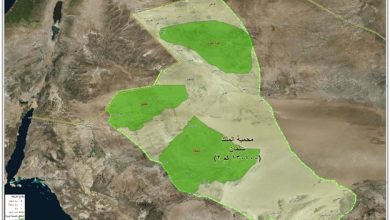Saudi Regime Oppose Tribes and See then as Burdens

The Saudi Regime opposes the tribes of the Kingdom and sees them as a burden, thereby marginalizing them, denying them citizenship and depriving them of their most basic rights.
For years, the Saudi media has played a dubious role in inciting the Kingdom’s tribes as a burden and hindering the progress of society.
The Saudi regime claims that the practice of tribal customs disrupts the work of the law and impairs the mechanism of action of state institutions. However, tribal customs are laws that reflect genuine Arab values and must be preserved.
These conflicting ideas came in an article by Saudi writers in the Okaz newspaper, which criticizes tribal customs and describes them as “the most serious issue affecting the social structure.”
Saleh Al-Shehhi, in his article “Salloum Kabylie” in Al-Watan newspaper, defended these customs and said that they did not restrict society. “Even with the shining of the light of Islam, our Prophet (PBUH) did not erase the customs of the Arab tribes, ‘I was sent to complete the morals.'” This debate among the Saudi writers is not new, as they have always differed on the importance and role of the tribes.
The two articles published in November last year included an official decision by the emir of the Makkah region, Khaled al-Faisal, to “prevent the prosecution of old customs and traditions between tribal leaders known in the area, to resolve disputes among them.
A few days after this decision, a statement by the social media users of the Interior Ministry’s Undersecretary for Civil Status, Nasser Al-Abdalwahab, attributed the existence of strict measures to the sons of two tribes when reviewing the civil status branches.
The Ministry of the Interior later denied that: “We affirm that Mr. Nasser Al-Abdalwahab and all civil servants all respect all tribes and all components of society.”
This confirms the importance of the tribes in Saudi society. It is still considered a clear identity of the people, who can be identified and their customs and morals through them. This decision was issued in order to preserve the reputation of the tribes and to avoid any problems with catastrophic reactions.
In return to 2003, al-Hayat interviewed Saeed al-Haddawi al-Ghamdi, a prominent member of the tribe of Gamad, one of the largest tribes in Saudi Arabia, and the tribal leader of Beni Haddah and its semi-official spokesman after several tribesmen were involved in the September 11 attacks in the United States. Most of the names listed in the list of 19 terrorists announced by Saudi Arabia in May 2003 belonged to this tribe, and many of its members participated in a series of terrorist attacks inside the Kingdom.
Al-Haddawi al-Ghamdi said in the interview that the vacuum and unemployment helped in the emergence of extremist ideology among some young men of the tribe.
The discussion about the existence of the tribes in Saudi Arabia is controversial, in which it is impossible to reach a conclusion or a radical solution. The talk of these tribes will be much more difficult in the coming years, with the vision of Saudi Arabia 2030 launched by Prince Mohammed bin Salman.
In the Kingdom, there are about 72 tribes, most notably Ateiba, Qahtan, Anza, Harb, Zahran, Dawasir, Mutair, Shamar, and Kanana. The presence of these tribes is not confined to Saudi Arabia but is spread to several other Arab countries.
The separation between the Saudi tribes and the royal family has never been farther than it has ever been. The mental and social commons are extensive, and the relationship has taken a form that can be described as long-term (ascetic).
The tribal system in Saudi Arabia was established by force. Since 1744, Mohammed Abdelwahab and Mohamed Bin Saud established the Kingdom based on the Islamic Sharia. However, they never allowed any opposition to emerge in the state. The newly-established Kingdom was given the name of the Saud Tribe. Internal relations in the Kingdom are based on submission to the Sheik of the tribe rather than citizenship and allegiance to the state.
The relationship with the rest of the country’s constituent tribes was forged based on allegiance (primarily through marriage) in return for some privileges for tribal sheiks.





